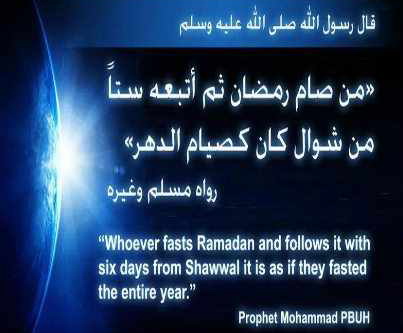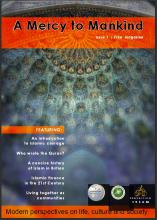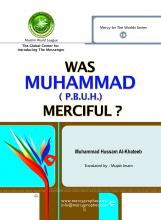The Prophet of Mercy Website
Muslim World League - Global Commission for Introducing the Messenger
In certain parts of the world, people enjoy freedom of conscience and choice, are free to lead their lives in peace and amity, to devote their energies to teaching and preaching, researching and making new discoveries. Yet even these parts of the world have not always been so tolerant, nor free from strife, nor disposed towards the co-existence of different peoples, sects and groups, still less sufficiently broad-minded, to accommodate differences of opinion.
Mankind has seemed, many times, to be bent upon self-destruction, and passed through stages when, by its own misdeeds, it has forfeited any right to survival. Men have sometimes behaved like crazed and ferocious beasts, flinging all culture and civilization, arts, literature, decency, the canons of moral and civil law, to the winds.
All of us know that the writing of history is of a relatively recent origin. The ‘pre-historic’ era was very much longer. The decline of mankind when it relapsed into savagery was by no means an agreeable task for historians and writers to record. Nevertheless, we do find narratives of the downfall of empires and the decay of human society, told at long intervals in the pages of history. The first of these date from the fifty century A.D. some are briefly touched and upon here.
H.G. Wells, the well-known historian, writes about the decay of the Byzantine and Sassanid Empires as follows:
Science and political philosophy seemed dead now in both these warring and decaying empires. The last philosophers of Athens, until their suppression, preserved the text of the great literature of the past with an infinite reverence and want of understanding. But there remained no class of men in the world, no free gentleman with bold and independent habits of thought to carry on the tradition of frank statement and inquiry embodied in these writings.
The social and political chaos accounts largely for the disappearance of the class, but there was also another reason why the human intelligence was sterile and feverish during this age of intolerance. Both empires were religious empires in a new way, in a way that greatly hampered the free activities of the human mind.1
The same writer, after describing the onslaught of the Sassanids on Byzantium and their eventual victory, comments on the social and moral degradation to which both these great nations had fallen:
A prophetic amateur of history surveying the world in the opening of the seventh century might have concluded very reasonably that it was only a question of a few centuries before the whole of Europe and Asia fell under Mongolian domination. There were no signs of order or union in Western Europe, and the Byzantine and Persian empires were manifestly bent upon mutual destruction. India also was divided and wasted.
Another writer, Robert Briffault strikes a similar note:
From the fifth to the tenth century Europe lay sunk in a night of barbarism which grew darker and darker. It was a barbarism far more awful and horrible than that of the primitive savage, for it was the decomposing body of what had once been a great civilization. The features and impress of that civilization were all but completely effaced. Where its development had been fullest, e.g., in Italy and Gaul, all was ruin, squalor and dissolution.
The Civilizations nurtured by ancient religions were disintegrating; this according to J.H. Denison. In Emotion as the Civilization, he writes:
In the fifth and sixth centuries the civilized world stood on the verge of chaos. The old emotional cultures that had made civilization possible, since they had given to men a sense of unity and of reverence for their rulers, had broken down, and nothing had been found adequate to take their place ...
It seemed then that the great civilization which it had taken four thousand years to construct was on the verge of disintegration, and that mankind was likely to return to that condition of barbarism when every tribe and sect was against the next, and law and order was unknown ... The old tribal sanctions had lost their power ... The new sanctions created by Christianity were working division and destruction instead of unity and order. It was a time fraught with tragedy.
Civilization, like a gigantic tree whose foliage had overarched the world and whose branches had borne the golden fruits of art and science and literature, stood tottering ... rotten to the core.
******






